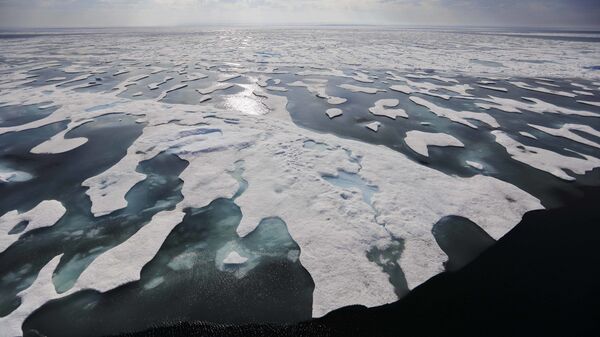The study, published in the journal Advances in Atmospheric Sciences, also found that the past 10 years have been the warmest on record for global oceans, with the last five being even warmer than the preceding five. The analysis was completed by an international team of 14 scientists from 11 institutes across the world and focused on data compiled by the Institute of Atmospheric Physics (IAP) of the Chinese Academy of Sciences.
The researchers’ findings revealed that the 2019 average ocean temperature was around 0.075 degrees Celsius higher than the 1981-2010 average. To reach that temperature, the ocean would have had to absorb around 228 sextillion joules of heat - that’s 228,000,000,000,000,000,000,000 joules.
"That's a lot of zeros indeed. To make it easier to understand, I did a calculation,” Lijing Cheng, lead paper author and associate professor with the International Center for Climate and Environmental Sciences at the IAP, said in a January 13 press release.
“The Hiroshima atom bomb exploded with an energy of about 63,000,000,000,000 joules. The amount of heat we have put in the world's oceans in the past 25 years equals to 3.6 billion Hiroshima atom bomb explosions,” Cheng added.
"This measured ocean warming is irrefutable and is further proof of global warming. There are no reasonable alternatives aside from the human emissions of heat trapping gases to explain this heating,” Cheng continued.
The researchers used new analysis methods to measure ocean temperature from the surface to 2,000 meters deep. They compared ocean surface temperature data from the period of 1987-2019 to the 1955-1986 period, and also found that warming from 1955 to 1986 was 450% greater than in the preceding six decades.
“It is critical to understand how fast things are changing,” John Abraham, co-author and professor of mechanical engineering at the University of St. Thomas in the US, said in the press release. “The key to answering this question is in the oceans - that's where the vast majority of heat ends up. If you want to understand global warming, you have to measure ocean warming.”
That’s because the world’s oceans absorb excess heat trapped by greenhouse gases that have been released through human activities such as the burning of coal. According to the researchers, more than 90% of global warming heat has been absorbed by the world’s oceans since 1970, while less than 4% of the heat has gone toward warming the atmosphere.
"Even with that small fraction affecting the atmosphere and land, the global heating has led to an increase in catastrophic fires in the Amazon, California and Australia in 2019, and we're seeing that continue into 2020," Cheng said. "The global ocean warming has caused marine heat waves in Tasman Sea and other regions."
The latest study comes after European scientists confirmed last week that 2019 was the second-hottest year ever recorded. According to a report from the Copernicus Climate Change Service (C3S), an agency supported by the European Union, global average temperatures in 2019 were 1 degree Fahrenheit higher than the average between 1981 and 2010; only 2016 was hotter than 2019 globally, by less than one-tenth of a degree Farenheit. Europe, however, experienced its warmest year ever in 2019.

